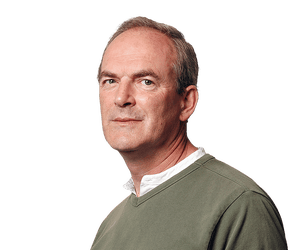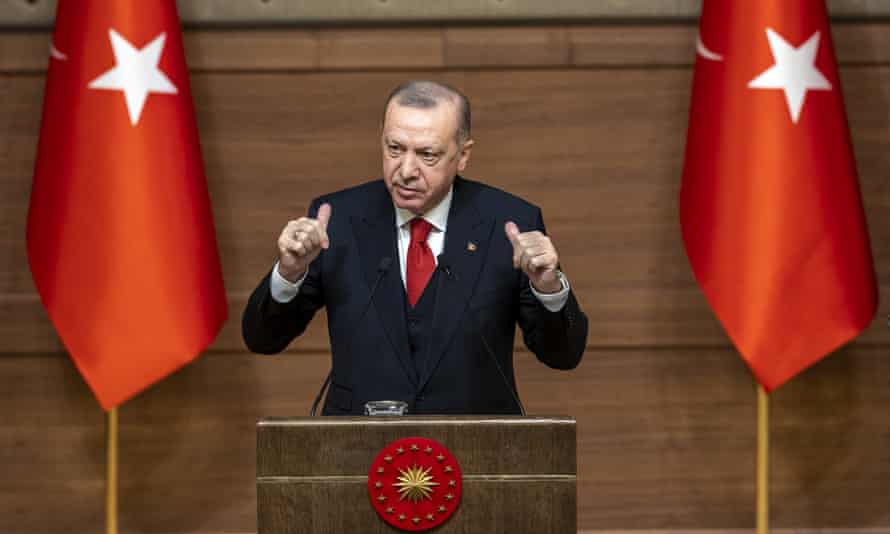Since January 4, 2021, student protests have been going on in Turkey. At Bogazici University in Istanbul, rectors are elected through free and fair elections by faculties. The only time in the institution’s history when these democratic processes were suspended was in the aftermath of the 1980 coup d’état. In today’s time, it is again being done.
Curtailing Academic Autonomy
On January 1, 2021, President Recep Tayyip Erdogan appointed a rector to Bogazici without any consultations with the university staff or students. The appointee, Professor Melih Bulu, has been a member of the governing Justice and Development Party (AKP) since its foundation in 2002 and had run a campaign for nomination for the parliamentary elections in 2015. The appointment of Bulu is another step in Erdogan’s attempt to extend his influence over Turkey’s social and cultural life.
He also faces allegations of plagiarism in his PhD thesis. Bogazici University faculty fear a number of negative consequences, including hiring based on political affiliation; malicious investigations against critical faculties; budget cuts to humanities and social sciences; and opening up the university’s iconic campus for private developers.
Students addressed an open letter to the president.
This appointment makes anyone who has even the tiniest sense of justice revolt with indignation…Your attempts to pack our university with your own political militants is the symptom of the political crisis that you have fallen into. Do not mistake us for those who obey you unconditionally. You are not a sultan, and we are not your subjects.
Agitations have escalated sharply as the government seized artwork with LGBT+ flags displayed at a student exhibition. Erdogan said there was “no such thing” as LGBT+ in a “moral” country such as Turkey and called the protesters “terrorists”. He has also accused them of taking instructions from “those in the mountains,” a reference to the Kurdistan Workers Party (PKK).
Hundreds of students from Bogazici have been arrested as they have joined demonstrations. They have been tear-gassed, shot at with rubber bullets, had snipers trained on them and been sexually assaulted and forced to strip while in custody. Undeterred, the protests have now culminated in the formation of a new opposition alliance, the United Fighting Forces (BMG). The alliance includes the Socialist Party of the Oppressed (ESP), Partizan, the Revolutionary Party and the Democratic Regions Party (DBP). Istanbul neighborhoods have lent the students support, banging pots and pans from their balconies at 9 p.m.
Origins of Authoritarianism
The AKP emerged on the Turkish political scene in 2001. It stitched together narrower Islamist political parties such as Refah (Welfare), Dogru Yol Partisi (True Path) and Fazilet (Virtue). In 2002, the AKP won the parliamentary election with a parliamentary majority – 34% percent of the vote translated, because of Turkish electoral rules, to 60% of the seats in the parliament.
After its first electoral victory, the AKP continued to receive 35 – 50% of all votes until the presidential elections in 2014, when the party leader Erdogan received more than 50% of votes and became the president of the Turkish Republic. Afterwards, in 2015, the AKP became the first party in a general election and regained the parliamentary majority in a snap election in the same year.
In the 2010s, the AKP altered the balance of power in Turkey. In 2014, it broke off relations with one of its closest allies, the US-based cleric Fethullah Gulen, and accused him of masterminding the failed coup attempt of July 2016. When the AKP came to power in early 2000s, they had popular support but not the support of the military and bureaucratic cadres. Therefore, they made an alliance with Fethullah Gulen, a former imam who led a tight community, and who had become rich and powerful beginning in the 1980s by investing money in education.
The Gulen movement provided the AKP with loyal military personnel, judges, teachers, police, and other bureaucratic personnel, and in return the AKP allowed Gulen members to control these institutions. Gulenists initiated high-profile trials against all actors that could challenge the AKP. The Ergenekon and Balyoz trials targeted high-level military officers, journalists, and opposition lawyers for plotting a coup against the government.
The Union of Kurdistan Communities (KCK) trial targeted pro-Kurdish intellectuals and activists. Gulen-affiliated lawyers used fabricated evidence, and violated the rules of the trial procedure. Yet, from 2014, this alliance broke down due to internal power struggles. Gulenists released voice recordings related to major AKP corruption scandals. In return, the AKP declared war on the Gulen movement. They took over their television stations, newspapers, universities, schools, and major holding companies and began to clear them from the military, police forces, and judiciary.
With the military coup attempt of July 2016, Turkey took a major turn. Since the power of the military had been lessened over the preceding decade, the incidence took all observers by surprise. This diminishment in power led the military – notorious for being able to carry out successful coups – to attempt a poorly coordinated intervention. Within a few hours, Erdogan pointed the finger at Gulen and called upon citizens to descend into the city centres and stop the coup.
Erdogan’s followers blocked tanks and lynched soldiers, many of whom did not even know that they were part of a coup. As soon as the threat had passed, Erdogan declared a state of emergency and forcefully purged anyone he viewed as being linked to the Gulen movement, along with other Kurdish and left-wing opposition members.
In the post-coup-attempt purges, some 150,000 government personnel were dismissed, 100,000 individuals were detained and 50,000 arrested, 149 media outlets were shut down, 150 journalists jailed, 17 universities closed, 8,000 academic personnel were dismissed, vast quantities of property were confiscated, and close to 1,000 allegedly Gulen-affiliated businesses e taken over by the state. During emergency measures, access to Twitter and YouTube was also blocked
Economic Troubles
Beneath the cacophony of authoritarian measures, a neoliberal economy is fully operational, pushing people into hardships of various kinds. The policies implemented by Erdogan in the pandemic have left millions of workers unemployed or on unpaid leave with only $156 monthly in 2020, increased to approximately $200 in 2021. The government extended this unpaid leave until July 2021. Millions have also been forced to take a short-time working allowance.
The cost of living is rapidly increasing. The Turkish Statistical Institute estimated that Turkey’s 2020 inflation rate stood at 14.6% – nearly three times more than the official 5% target of Central Bank (TCMB). Turkey is one of a few countries with a double-digit inflation rate. Many studies suggest the real inflation figure is much higher.
The Inflation Research Group (ENAG) has used the standards of “Classification of Individual Consumption According to Purpose” (COICOP) of the United Nations (UN) Statistics Department, a common inflation calculation method adopted by many countries. It calculated the 2020 annual inflation rate at 36.72%. The ENAG found that annual price increases for staple products was even higher: 55% for butter, 80% for sunflower oil, 66% for olive oil, 35% for cheese, 67% for olives, 53% for chicken and 130% for eggs.
Rising Resistance
Erdogan, and the right-wing regime he leads – comprised of AKP and its fascistic ally, the Nationalist Movement Party (MHP) – urgently need the appearance of grandeur, as the situation is rather grim: poor handling of COVID-19, falling approval ratings, a severe economic crisis, and an emboldened opposition. Aware of its precarious position, the ruling bloc has consolidated its methods of authoritarian governance, repressed dissidents domestically, passed laws to weaken civil society and opposition mayors, and used chauvinist and sexist propaganda.
From the start of the protests, students have situated their resistance as part of the bigger fight against authoritarianism and made links beyond the university. They have named Bulu a “trustee rector” in reference to the government-imposed trustees that have replaced almost all the democratically elected Peoples’ Democratic Party (HDP) mayors. The initial protests that started at Bogazici University have spread to all major cities – including Ankara, Izmir and Bursa – with thousands on the streets and not only students. Protests like these will keep intensifying as the dynamic of neoliberal authoritarianism clashes head-on with the revolutionary aspirations of the people.
This article was posted on Thursday, February 11th, 2021 at 11:29pm and is filed under Authoritarianism, COVID-19, Militarism, Neoliberalism, Police, President Recep Tayyip Erdogan, Protests, Students, Turkey, Unemployment.
This post was originally published on Radio Free.




